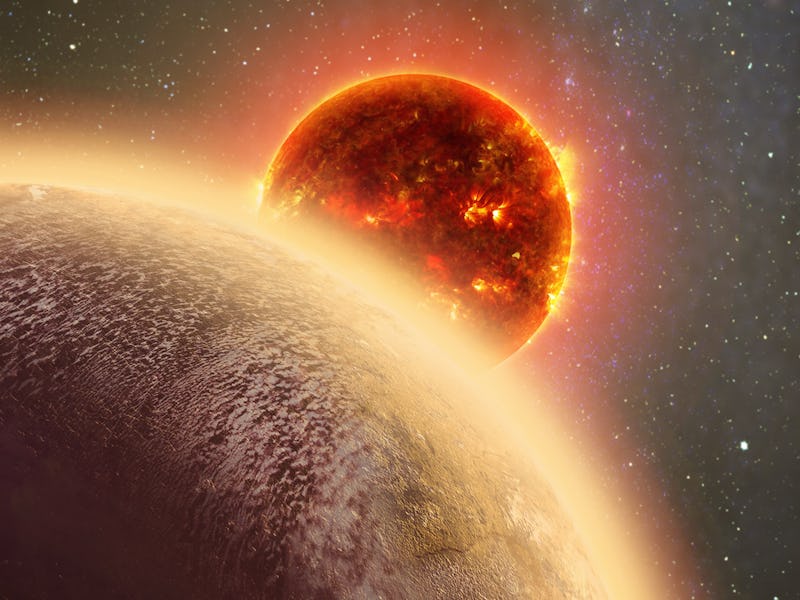This Venus-Like Exoplanet Used to Have an Oxygen Atmosphere

The rocky exoplanet GJ 1132b isn’t a great spot for a space vacation, even if there are traces of breathable elements in the atmosphere.
It’s hot as hell — around 450 degrees Fahrenheit — and flooded with ultraviolet light, which is why scientists first hailed it as Venus’ twin when it was first discovered. But all that heat did something interesting to GJ 1132b’s atmosphere, and scientists think that studying the body could provide insight into the mysteries of Venus and other exoplanets.
GJ 1132b’s atmosphere used to be “thin and wispy,” according to a new paper from the Harvard-Smithsonian Center for Astrophysics; while that sounds more like a descriptor for Donald Trump’s hair, to the paper’s authors it means oxygen. The exciting news is that this is considered the first time researchers have ever detected oxygen on a rocky planet outside of our solar system. The bad news is that we can basically rule out the possibility of life on the exoplanet.
“On cooler planets, oxygen could be a sign of alien life and habitability,” lead author Lara Shaefer says. “But on a hot planet like GJ 1132b it’s a sign of the exact opposite — a planet that’s being baked and sterilized.”
Shaefer and her team determined that a “magma ocean” on the exoplanet absorbs about one-tenth of the available oxygen. They think that the rest of the oxygen steams off into space, but the hope is that some of it remains on the planet. To find out, Shaefer’s team will have to use highly advanced telescopes like the Giant Magellan Telescope and the James Webb Space Telescope to detect and analyze the atmospheric results.
In the long run, though, the analytical model Shaefer and her team designed may be the most useful result of the study. Scientists believe Venus was once full of water, like Earth, but there are few existing signs of oxygen. If Shaefer’s model can figure out what happened to Venus, it could provide valuable insights to similar exoplanets — especially those that still may be habitable.